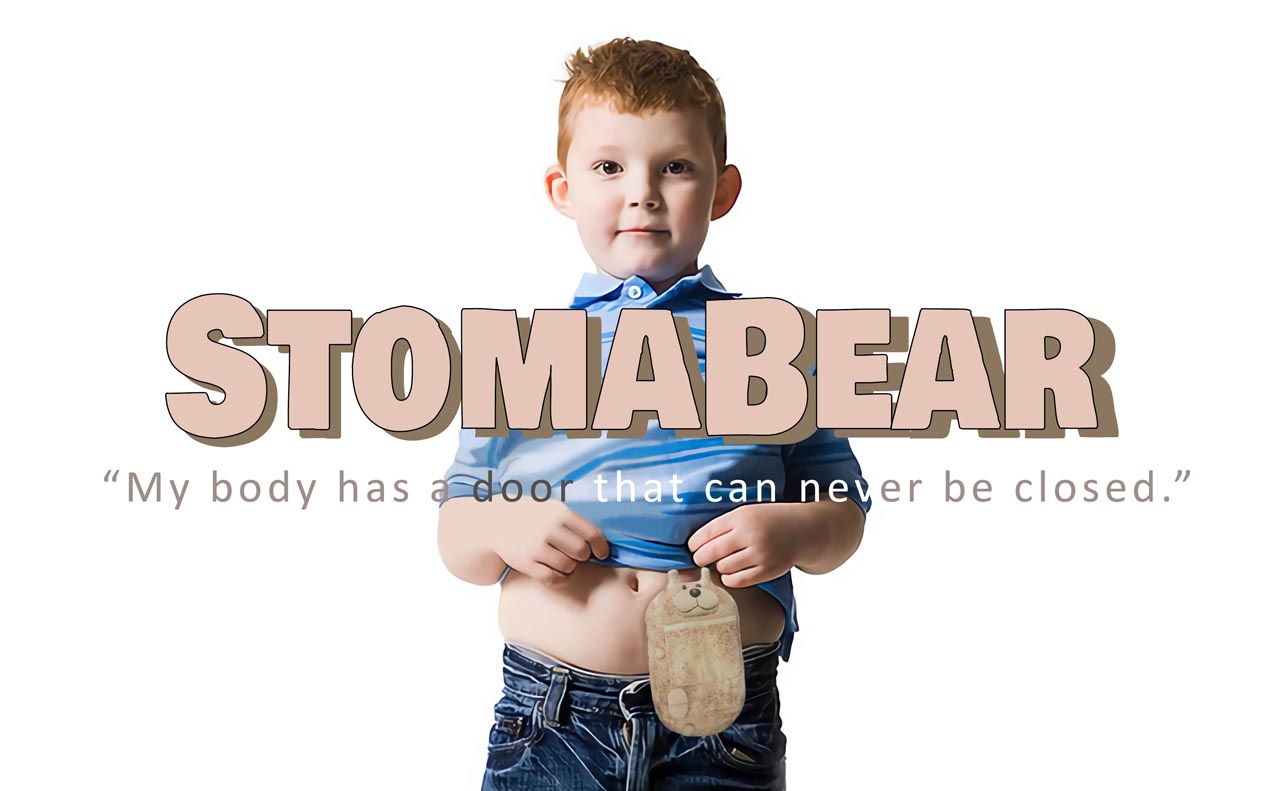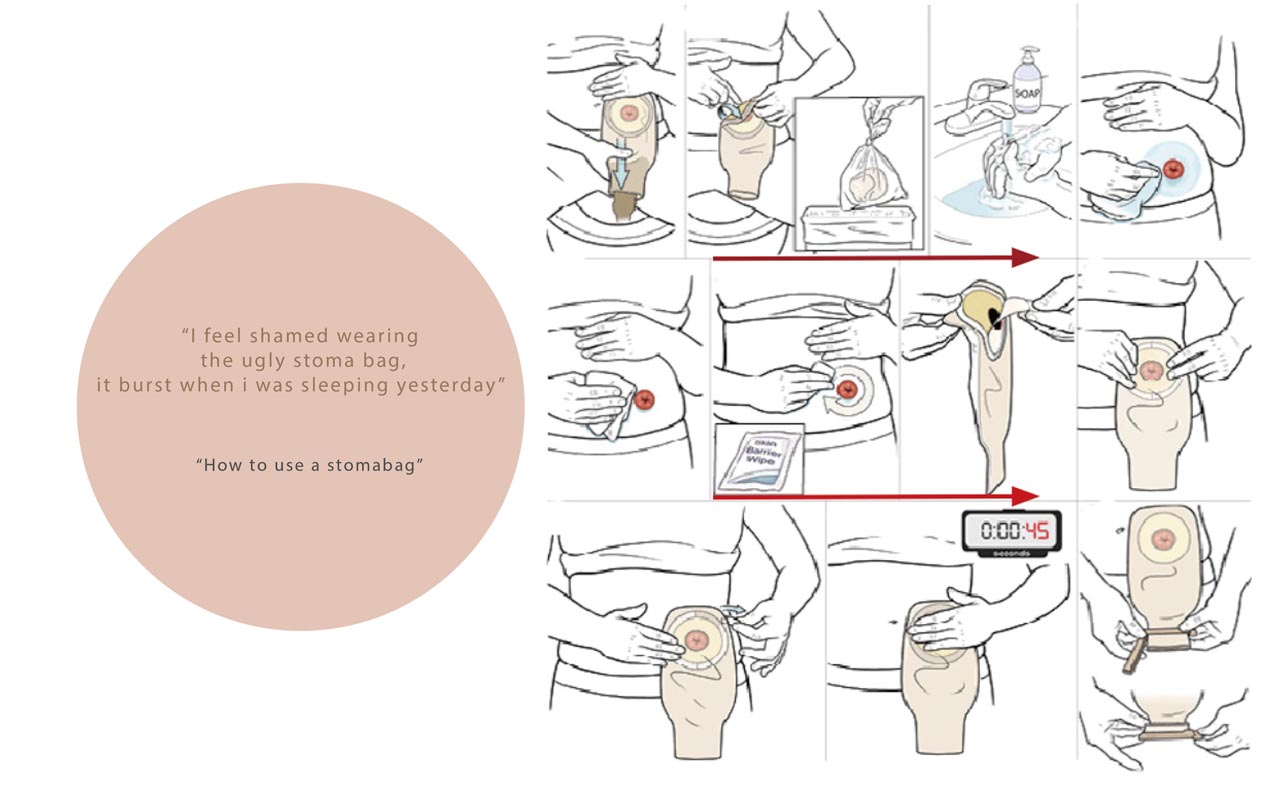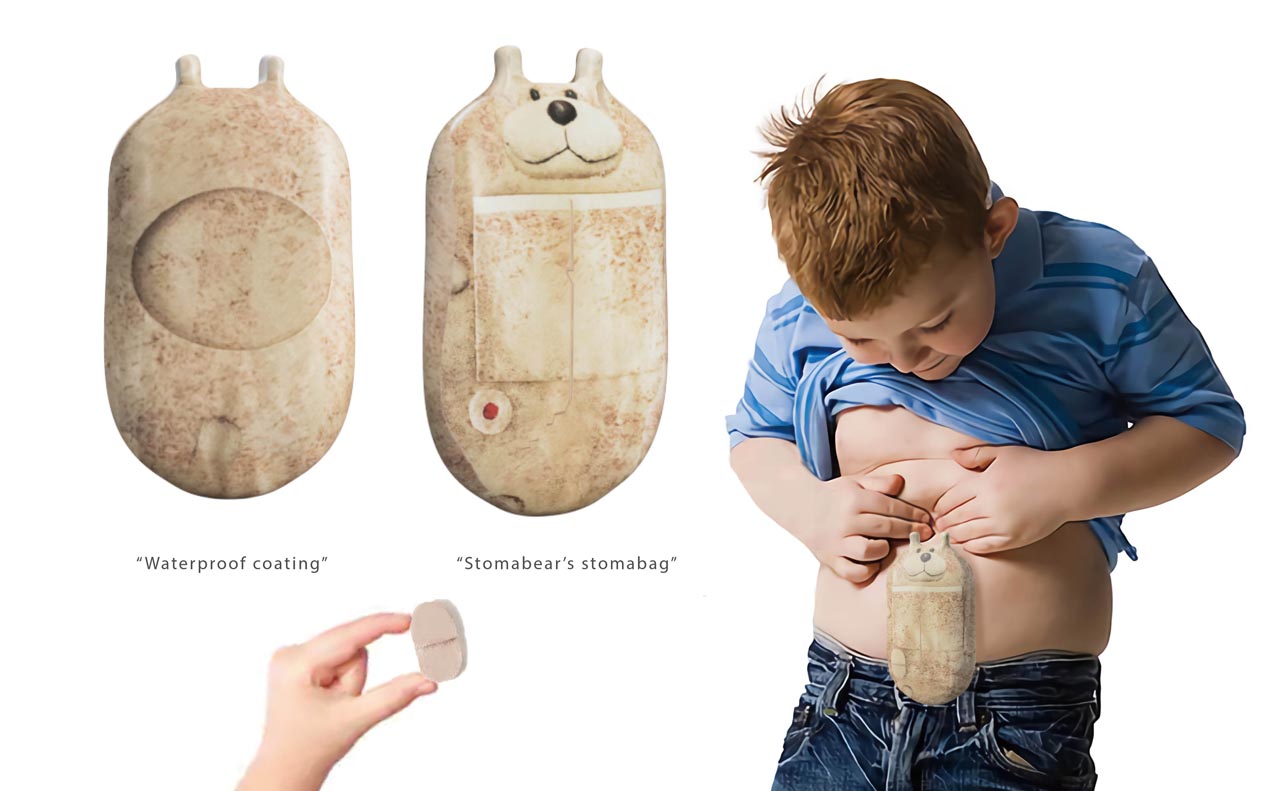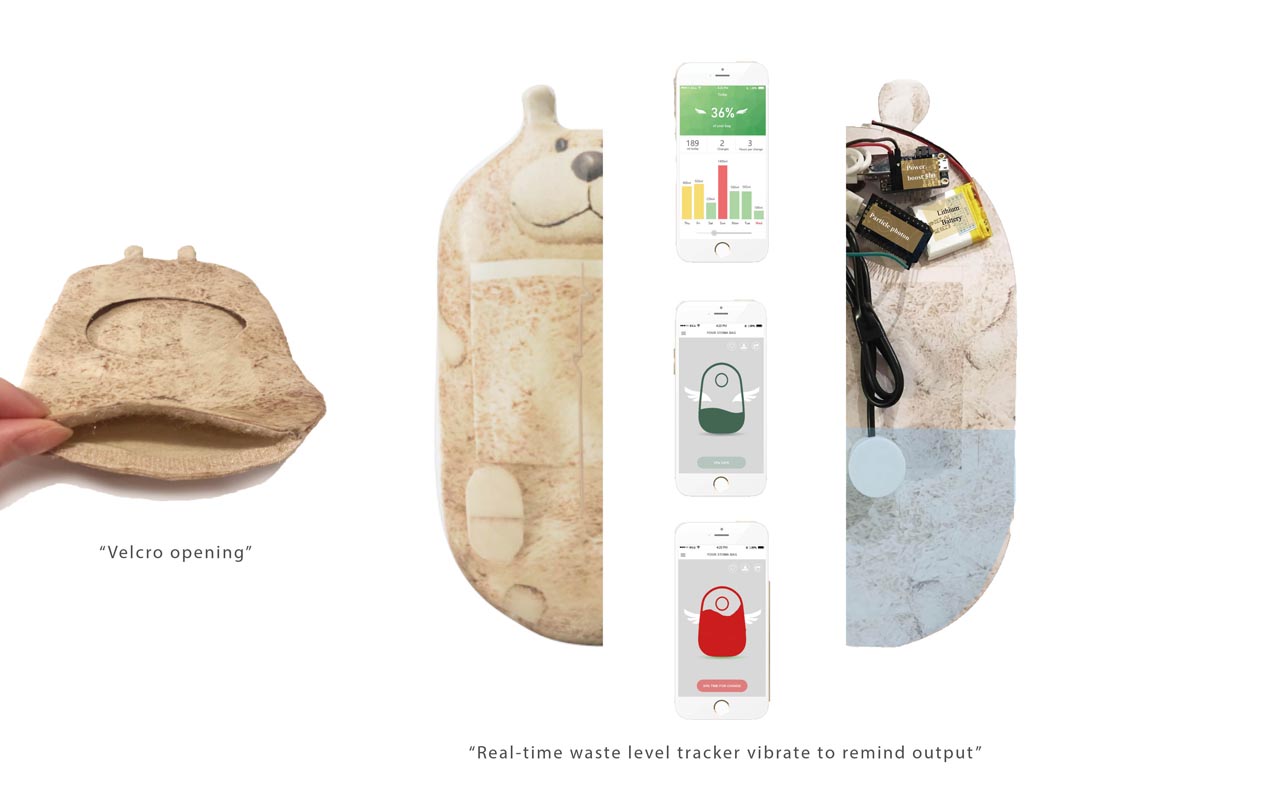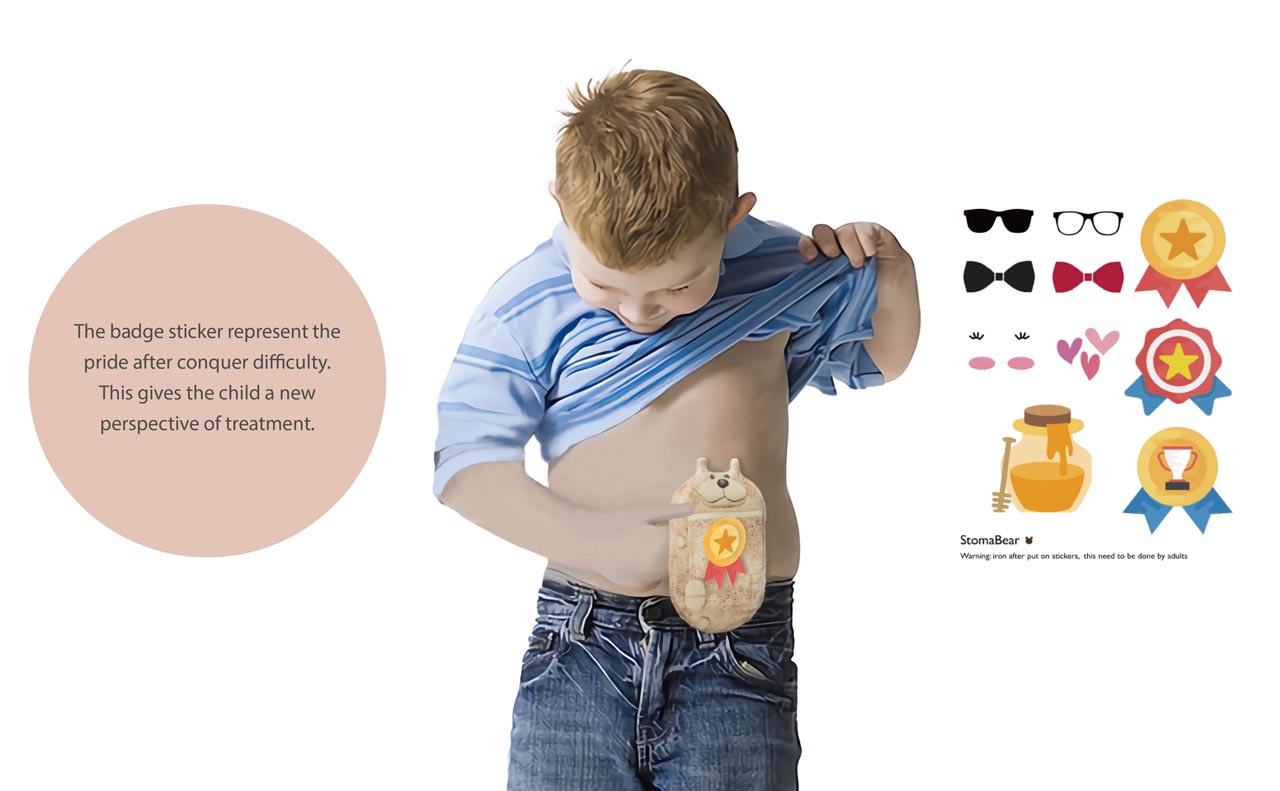Children face extreme insecurity while wearing a stoma bag daily. Having a stoma is like having a wound which will never recover. They feel disabled, as the stoma bag may suddenly burst while sleeping, which is the top concern according to stoma bag users.
The narrative of StomaBear is to design an intelligent stoma bag related product for children from age 3-9, which can solve the stoma bag\’s leakage problem, so parents don’t have to check regularly.


